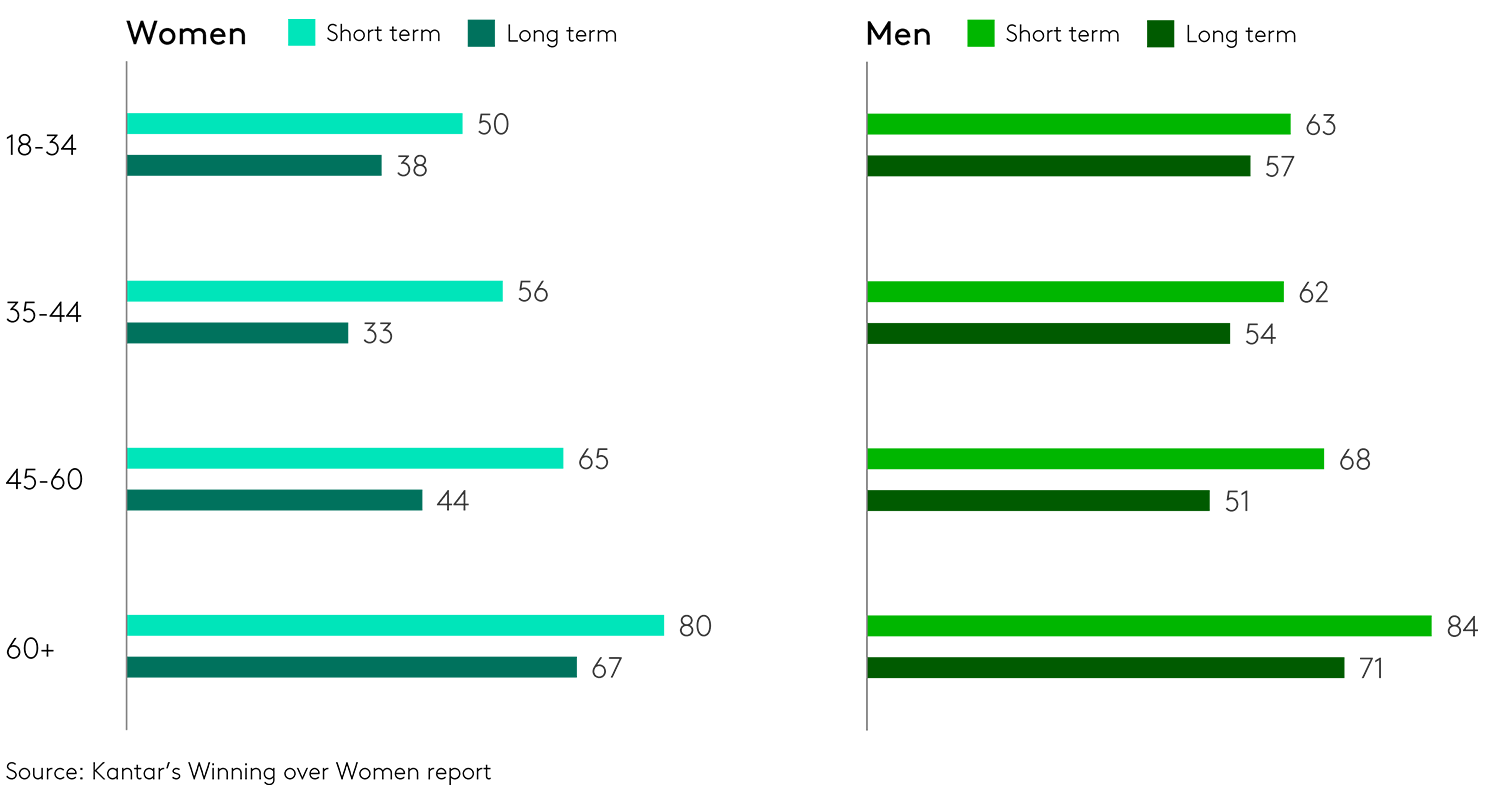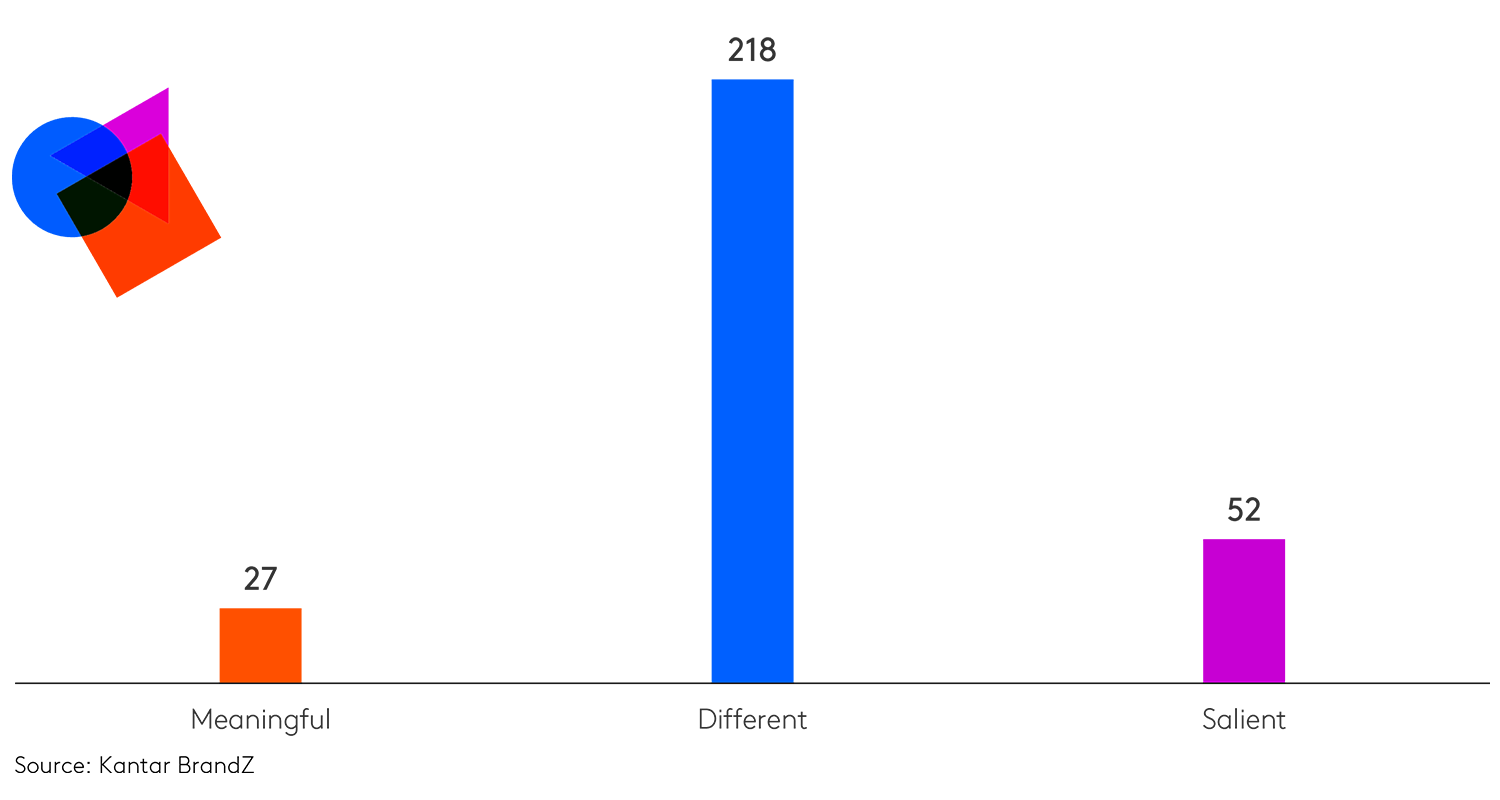The pace of technological advancements in today’s disruptive times is unprecedented, yet we continue to grapple with getting the fundamentals right for women’s equality and empowerment.
An example that helps explain this gap is the way brands have been focusing on the #pinkification of products and services, which is often about using stereotypical feminine imagery, colors and language to market products and services to women.
The United Nation’s Sustainable Development Goals show there has been progress in gender equality over recent decades, but the world is not on track to achieve the 2030 targets. At this pace, it would take another 40 years for women and men to be represented equally in national parliaments.
The theme for International Women’s Day 2023 calls the world to #EmbraceEquity. To achieve this, brands need to build meaningfully different innovations by accepting, adopting and creating an inclusive world.
So, how can brands create effective solutions for women?
Brand innovators can alter the status quo for women by not just responding to obvious whitespaces, but by sensing and addressing blind spots. A classic example is service industries like the finance sector, where women continue to be underserved, especially in the world of investments. Kantar’s Winning with Women study reinforces the link between women’s self-esteem, confidence and their behavior in financial services adoption. The study revealed that a third of women (compared to a quarter of men) say they don’t invest because they think that they don’t know enough about it. This increases to almost half (44%) of millennial women. It reflects women’s concern with not being seen as uninformed, as well their lower levels of confidence and lack of experience.
Women have less confidence in managing longer-term finances

Innovating for women
Based on our experience working with innovators across industries worldwide, here are five principles that innovators should consider to #EmbraceEquity.
1. Go beyond ‘knowing’ to ‘sensing’
Contextual understanding extends beyond demographics and lifestyles and takes into account lifestage transition milestones that need to be evaluated in the context of social and cultural norms. Lifestage transition milestones, especially around puberty, pregnancy, parenting, career breaks and menopause, carry unknown frustrations and complaints that are hard to articulate. Not only that, social norms and conventions dictate that women and society at large too often accept and don’t voice their pains.
Some brands are leading the way in acknowledging the unstated pain points to empower women. Adidas acknowledged and responded to an alarming statistic - one in four girls drop out of sports during adolescence because they worry about leakage. The sportswear giant created a line of period-proof activewear under TechFit leveraging technology that prevents leakage. Further, their ‘Reimagine Sport’ campaign focuses on empowering women through sport.
2. Get inclusive design right
Kantar’s Global Monitor 2022 report shows that 51% of people globally say it is important that companies offer more products that meet the needs of underserved and often marginalized groups. Inclusive Design is about creating solutions that meet the needs of as many people as possible. It’s about acknowledging and understanding the diversity of experiences and the multifaceted, intersectional nature of people, whilst finding solutions that are comparable for all.
When developing products and services for women, find female empathy, and collaborate with an openness to learning and unlearning. We encourage brands to not just learn with women but to create solutions with them. L’Oreal is one brand that embraces inclusivity in its products and services. In LATAM, they created an inclusive range of sun care products focusing on the diversity of Brazilian skin. The focus on a product range for different skin types is tied to one fundamental truth that “the sun’s UV rays affect all skin types, regardless of their color”. This is reflected in our Kantar BrandZ LATAM report, where L’Oreal Paris scores highly on meaningful difference (Meaningful Index=108, Different Index=169). Similarly, ItsTrueMatchTM foundation caters to a wide range of skin tones and its hair care range covers diverse hair types and textures.
3. Be brave. Break the status quo
Mooncup was established in 2002 and was the first silicone menstrual cup to enter the UK. It offers consumers a sustainable way to manage menstruation without the excessive waste that comes with sanitary products. The expense of menstruation products is a key tension that Mooncup set out to resolve with a single reusable product that lasts years. It is also recognized for shaking things up in sustainability.
Highly differentiated products offer solutions

4. Create a frictionless adoption journey
Our Winning With Women 2021 report highlights how women have less confidence in managing longer-term finances. The study revealed that although they are only a little less confident than men about managing short-term ‘everyday’ finances (62% say they are confident; 67% of men say the same, they are considerably less confident about long-term finances (46% of women say they are confident vs. 56% of men). Further studies show that women struggle to adopt newer financial technologies, due to a lack of financial literacy and access to financial products and services. Some finance brands such as Ellevest, a robo-advisor that focuses on women's financial goals and needs, are attempting to create more inclusive financial products and services. Its service offering considers women’s pay gaps, career breaks and longer lifespans.
5. Invest in meaningful data
Meaningful data is the foundation of deep understanding of women, and people more generally, and truly capturing the motivations and frictions of your target audience. Invest in meaningful data that bring multiple perspectives to the table.
Start by getting the basics right – accessing inclusive community panels. Invest in holistic ‘outside-in’ approaches with trends and foresight capabilities to systematically capture future-focused opportunities. Leverage digital capabilities to unearth tensions through social analytics. And test and refine new innovations and enhancements with your target audience to optimize your potential and maximize ROI. Then track your innovation post-launch to ensure the long-term success of your innovation.
What next?
When people’s needs and frictions are truly understood at the conception of a new innovation, and carefully considered throughout the innovation journey, success ensues. And understanding women’s needs at different lifestages and contexts is no exception.
So, make innovation a learning journey by placing people at the heart of it, and considering the individual needs and frictions of different people - including women.
Get in touch to discuss how to #EmbraceEquity in your innovation.


